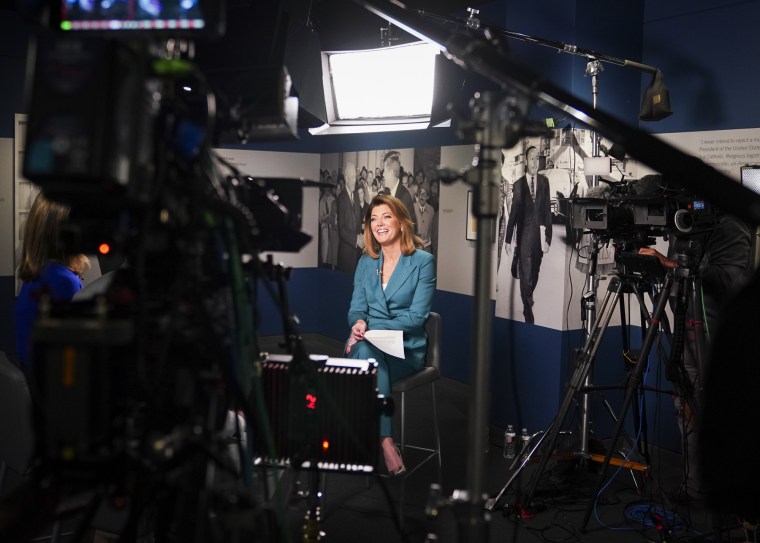More than 6.5 million CBS viewers found their screens dark on Saturday, after a dispute with AT&T led to the network's feed getting blacked out in markets from Los Angeles to New York. It's the latest battle in an ongoing war between companies that carry the channels and the media giants that create the content.
On Saturday morning, CBS went dark on the AT&T-owned satellite service DirecTV in a dozen or so markets owned by the newly formed media giant.
Households across the country were blocked from programming that included the revamped "CBS Evening News" with Norah O’Donnell, and summer reality shows such as “Love Island.” If the dispute drags on through September, it could deprive viewers of many games in the next NFL season, a ratings juggernaut for the network.
At issue is the cost to DirecTV to transmit the CBS channel. Such rates are routinely the subject of renegotiation, and it's the second time this summer that DirecTV has been involved in a blackout. Earlier this month, consumers in 97 markets lost access to a range of broadcast networks after DirecTV failed to agree to a price increase requested by station owner Nexstar. That meant some viewers couldn’t watch the U.S. team win the Women’s World Cup.
Last week, the rival satellite company Dish blacked out Meredith-owned network stations in a similar pricing dispute. In November, Dish viewers lost access to HBO, part of WarnerMedia, owned by AT&T. FX and National Geographic channels, owned by Disney, are also potential collateral in a separate dispute with Dish.
CBS reportedly costs DirecTV around $2 per month per subscriber, a deal that CBS says dates back to 2012 and "is nowhere close to today’s fair market terms for CBS content — to which AT&T's competitors have repeatedly agreed,” according to a statement from CBS Network. The network is looking for an increase of around $1.
“CBS has put our customers into the middle of its negotiations by pulling its local CBS stations in 14 cities," said AT&T in a statement. "We were willing to continue to negotiate and also offered to pay CBS an unprecedented rate increase. That increase would present CBS the highest fee we currently pay to any major broadcast network group, despite the fact that CBS stations are available free over the air.”
While summer is traditionally the slow season for television viewing, the blackouts come at a time when consumers are abandoning pay-TV altogether and opting for subscription streaming services such as Netflix and Hulu that rely only on a broadband connection.
Until the disputes are resolved, customers continue to pay for TV channels they cannot watch.
